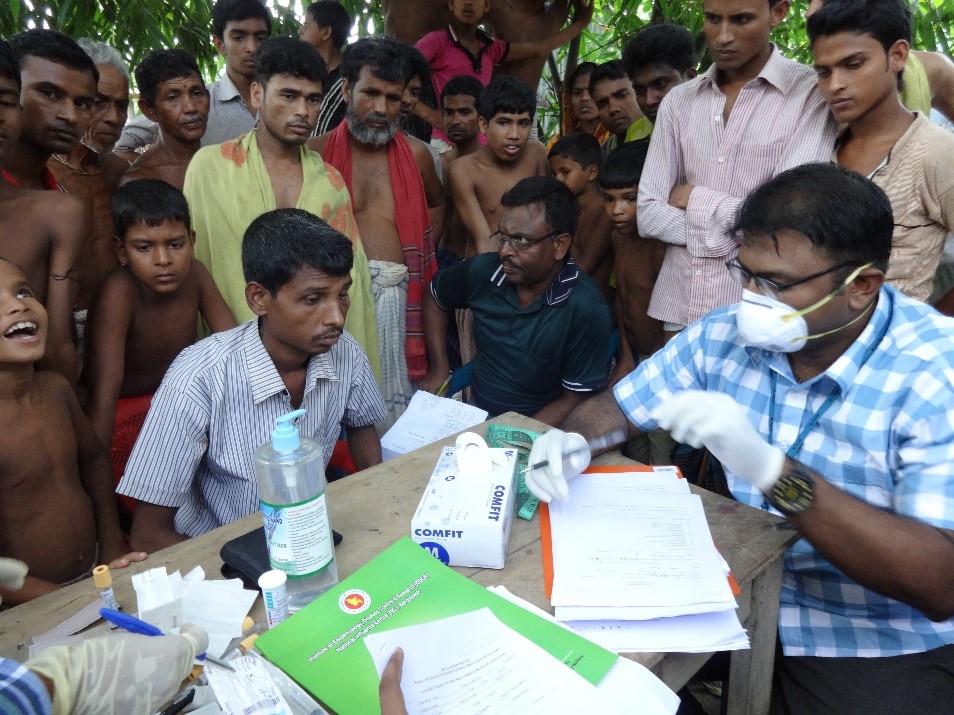
New Delhi: Writing in the international medical journal The Lancet, India’s health minister has said that tuberculosis (TB) “not only exacts a terrible mortality toll in India, it also has profound financial implications”.
India has 27% of the world’s TB population. This is the highest concentration of TB-affected people in any single country.
One financial implication of TB is poverty. J.P. Nadda, India’s health minister, quotes new analysis from The Lancet and says that TB in India keeps people from escaping poverty for seven years even after they have completed the TB treatment.
Also read: To Tackle the Tuberculosis Crisis, Diagnostics Must Be Brought Closer to Patients
Another way of looking at this financial implication is public loss. The Lancet’s analysis says that “unavoidable TB deaths will cost the economy at least $32 billion each year over the next 30 years.”
Nadda’s comments come as part of a 62-page report by the Lancet Commission on Tuberculosis titled, ‘Building a TB free world.’
India scores high on political will
In the Lancet Commission’s report card for India, the only parameter on which India has been given a top score on is “political will,” which it says is “high”. Seven other parameters “needs improvement,” three parameters are “approaching target” and one is “on target.”
Political will, intent and claim has indeed been “high” under the Narendra Modi government, with the government pledging to eliminate TB by 2025 even as the global goal has been set to 2030.
However one of the papers part of the Lancet Commission report says it would take until 2100 to reach India’s “End TB” goals, even with “extreme measures.”
India notified 2 million new cases of TB last year

Nadda also published some important statistics on India’s TB burden in The Lancet.
India’s National Strategic Plan for TB has been budgeted $2 billion, which is now “fully funded and operational”. Apart from this, India allocates $100 million annually, to provide nutrition to TB patients.
India has also been working hard to detect new cases of TB and Nadda published an alarming figure in The Lancet – in 2018, there were 2.15 million new cases of TB notified in India. This is an increase of 3,00,000 cases in a single year, or an increase by 16%.
Also read: The Standards and Double Standards of Dealing With Tuberculosis in India
India has been struggling to trace and then track TB patients and this is largely because the patients mostly go for treatment via the private sector. Nadda says India now notifies over 5,40,000 cases annually from just the private sector.
The Lancet Commission has paid special attention to the private sector’s role in India’s TB crisis. In 2016, new research showed that India had been under-estimating TB cases by over a million, because TB patients in the private sector were not being counted in the government’s official data.
Other high burden countries have been studied for the most stark features of their own respective TB situations. For example, Kenya has been studied for their high HIV burden, and Moldova has been studied for its high levels of multi drug resistance.
Also read: ‘Incompatible With Life’, TB Patients Struggle with Modi Government’s Policy on Nutrition
The Lancet says India will need to optimise its private sector engagement and this alone could avert eight million TB deaths by 2045.
Nadda also listed out a number of Indian programmes and schemes that can all go some way in helping India reach its elimination goal. In his article he says the Ayushman Bharat insurance scheme and wellness centres, Swachh Bharat Mission, Nutrition Mission, Ujjwala Yojana, Housing for All by 2022, Skill Development Programmes etc, can all help.
He also flagged other issues that drive tuberculosis which the government will need to attend to, such as overcrowding, rapid urbanisation, diabetes and under nutrition.

